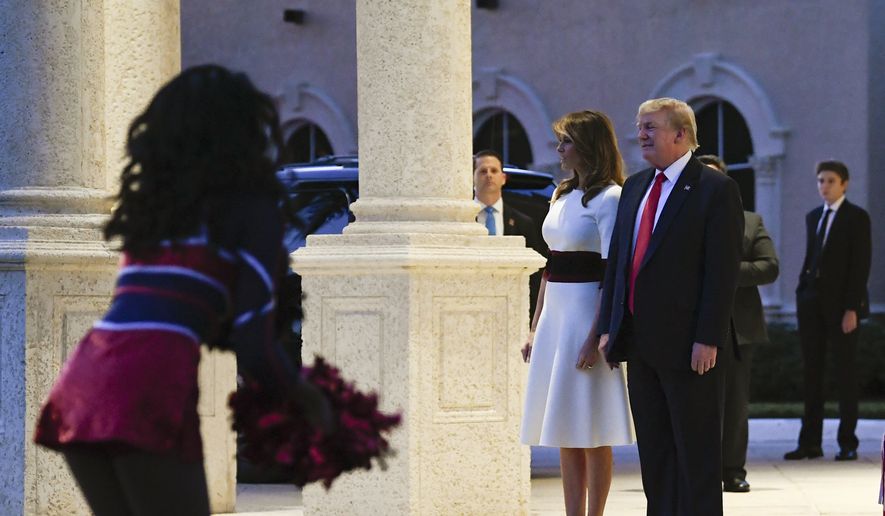President Trump’s reelection campaign aired a surprise TV ad on criminal-justice reform during the Super Bowl Sunday night featuring the president’s grant of clemency for former inmate Alice Johnson.
Trump campaign manager Brad Parscale contrasted the president’s leadership on criminal-justice reform with NFL players who previously knelt during the Star-Spangled Banner to protest injustices in the legal system.
“President Trump strongly disagreed with how some in the NFL chose to disrespect our flag, our country, and the people who serve it, just to express their views of the criminal justice system,” Mr. Parscale said. “The Super Bowl is the perfect place to debut this ad, because it clearly communicates how President Trump expressed his concerns about the issue — he acted and he helped improve people’s lives.”
The 30-second spot in black and white showed Mrs. Johnson, a grandmother who is African-American, expressing jubilation and gratitude to Mr. Trump upon her release from prison after serving 21 years for a first-time drug offense.
“I’m free to hug my family. I’m free to start over. This is the greatest day of my life,” Mrs. Johnson exclaims while surrounded by family and friends on the day she was released “My heart is just bursting with gratitude. I want to thank President Donald John Trump. Hallelujah!”
The ad states that “politicians talk about criminal justice reform. President Trump got it done. Thousands of families are being reunited.”
The campaign also noted that former President Barack Obama “did not intervene in Johnson’s case during his eight years in office, despite three requests.”
The campaign had kept the ad under wraps until it aired. The president’s re-election team also paid for a 30-second spot highlighting his efforts to keep America secure and prosperous.
Mr. Trump commuted the sentence for Mrs. Johnson in June 2018. Six months later, he signed into law the First Step Act, which is aimed at providing thousands of prison inmates with a second chance.
The law provides inmates with opportunities to take part in vocational training, education, and drug treatment programs to help them gain their release and obtain jobs.
• Dave Boyer can be reached at dboyer@washingtontimes.com.




Please read our comment policy before commenting.